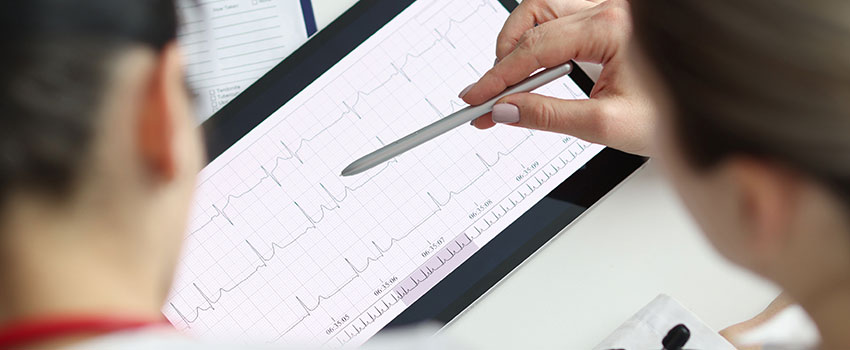Does Ventricular Tachycardia Damage the Heart?

Heart issues are common among Americans. In fact, heart disease is the leading cause of death in America right now.
While ventricular tachycardia isn’t a form of heart disease, it is a heart issue that can lead to serious complications if not diagnosed and treated correctly. Read on to learn more about it from our AFC Urgent Care Cleveland team.
What Is Ventricular Tachycardia?
Ventricular tachycardia (VT) is a type of abnormal heart rhythm, and it occurs when the lower two chambers of the heart—the ventricles—don’t beat as they should and can’t supply the rest of the body with enough oxygenated blood. VT can last for just a few seconds and not cause any real problems, or it can reoccur and increase the risk of heart failure and other serious complications.
We’ve listed the most common symptoms of VT below.
Common Ventricular Tachycardia Symptoms
- Chest pain
- Dizziness
- Pounding heartbeat (palpitations)
- Lightheadedness
- Shortness of breath
How Serious Is Ventricular Tachycardia?
It’s fairly serious. Even though quick bouts of VT don’t actually cause any damage, the heart isn’t supposed to act the way it does when this condition happens.
What becomes truly serious, though, is sustained ventricular tachycardia (sustained V-tach, for short). This is when VT happens often or for a length of time, which can cause syncope (fainting) and/or lightheadedness in the mildest cases and ventricular fibrillation (a life-threatening arrhythmia) and cardiac arrest in its most serious cases. If you are worried about dealing with VT, stick to the prevention tips that we’ve listed below!
Ways to Prevent VT
- Exercise often. This means getting at least 150 minutes of moderate aerobic exercise each week, according to the CDC.
- Maintain a healthy diet. A diet low in saturated and trans fats and rich in fruits, vegetables and whole grains helps keep the heart healthy.
- Control stress. High stress levels cause a high BPM, which puts more stress on the heart.
- Don’t use illegal drugs. Stimulants, such as cocaine and meth, cause lots of damage to the heart.
We’re here for you now and always! Don’t hesitate to visit our AFC team to get the quality non-emergency care you deserve.
